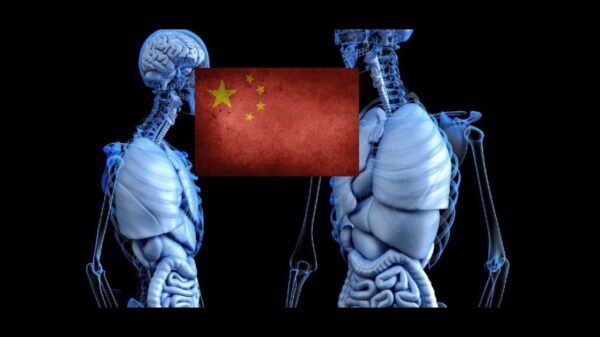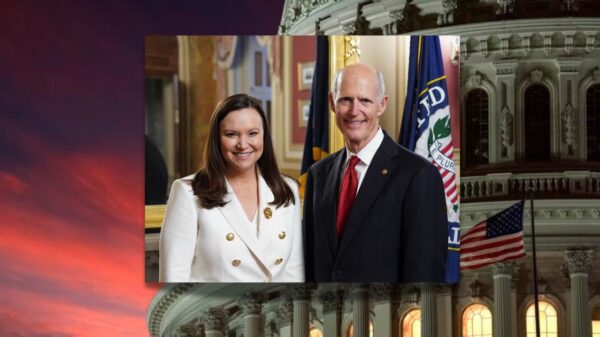Florida’s two U.S. senators–Republicans Marco Rubio and Rick Scott–continue to hit the World Health Organization (WHO) for failing to push China harder on how it handled coronavirus.
Earlier this week, Scott called for Congress to investigate the WHO insisting it helped the Chinese regime “cover up information regarding the threat of the coronavirus.” Back in the middle of February, Scott sent a letter to the Director-General of the World Health Organization (WHO) urging the WHO to do its own in-depth analysis on the extent of the coronavirus.
Scott continued to take aim at the WHO in an interview with The Daily Signal published on Thursday.
“If the WHO had done its job, not as many people would be dead, we would be further along right now, and every country would be better off,” Scott told The Daily Signal.
Scott also told the Daily Signal that he has asked U.S. Sen. Ron Johnson, R-Wisc., the chairman of the U.S. Senate Homeland Security and Governmental Affairs Committee, about investigating the WHO. Johnson supports the idea, Scott, who sits on the committee, said.
“We could cut funding or we could tie future funding to certain changes,” Scott told The Daily Signal, “It is supposed to be the World Health Organization, world health, but it panders to China.”
In the meantime, Rubio, who sits on the U.S. Senate Foreign Affairs Committee and who is a co-chair of the Congressional-Executive Commission on China, wrote a piece on the WHO published at National Review this week.
“We are in the midst of a deadly coronavirus pandemic that has put millions of lives at stake, and yet there is grave cause for concern over the independence of the United Nations’ World Health Organization (WHO). To be clear: There is no concern over the frontline health-care workers, scientists, and experts who do heroic work, often at great risk to themselves. They embody the WHO’s stated values of ‘put[ting] people’s health interests first,’” Rubio wrote.
“No, the concern stems from WHO’s current leadership, who have regularly demonstrated their servility to the Chinese Communist Party (CCP). The latest example comes in the form of a now-viral video interview, in which a WHO senior adviser abruptly ends the interview when asked about Taiwan. Dodging questions about Taiwan to please Beijing isn’t fatal, but it is indicative of a systemic problem within WHO leadership: a subservience to Beijing that comes at the expense of its stated commitment to public health,” Rubio added.
“Examples that could prove fatal are rife. In December, the WHO refused to act on or publicize Taiwan’s warning that the new respiratory infection emerging in China could pass from human to human. In mid January, despite accumulating evidence of patients contracting what we now know as COVID-19 from other people, the organization repeated the CCP’s lie that there was no evidence of human-to-human transmission. In January the WHO, at Beijing’s behest, also blocked Taiwan from participating in critical meetings to coordinate responses to the coronavirus and even reportedly provided wrong information about the virus’s spread in Taiwan. These actions are unacceptable and should not be allowed to continue,” continued.
“The world’s leading global health organization cannot be used as a tool of the CCP, and the U.S. — the WHO’s largest financial contributor, giving five times as much money as obligated — must take steps to ensure it does,” Rubio wrote. “Once this pandemic is under control, WHO leadership should be held to account. That includes Director-General Tedros Adhanom Ghebreyesus, who has allowed Beijing to use the WHO to mislead the global community. Today, WHO leadership continues to laud the CCP’s response even as more independent international observers raise questions over whether it is in fact under control in China. At this moment, Dr. Ghebreyesus is either complicit or dangerously incompetent. Neither possibility bodes well for his future at the helm of this critical organization.
“I will also work with my colleagues in Congress to review U.S. contributions to the WHO. Most of our contributions can be used at the discretion of the WHO leadership. Maintaining current levels of U.S. contributions should depend on whether the WHO can reclaim its independence. First, we need investigations into the WHO’s unacceptably slow decision-making on whether to declare a global pandemic and into how China has compromised the integrity of the WHO. As well, we need accompanying reforms,” Rubio insisted.
Rubio and Scott have also been sharply critical of the WHO keeping Taiwan out of it. In his piece at National Review, Rubio insisted the WHO could learn something from them.
“Despite the CCP’s suppression of information about COVID-19 and the WHO’s breach of public trust, the Taiwanese have seen low rates of infection, thanks in part to clever preventive strategies put in place after the 2002–3 SARS epidemic — another instance in which a virus from China affected Taiwan. This time, Taiwan implemented a raft of rapid emergency measures such as travel bans, quarantines, and strict social distancing,” Rubio wrote.
“When people’s lives were at stake, Taiwan acted to protect them. That is exactly what the WHO should be doing; instead, it has undermined global health by carrying water for Beijing. The global coronavirus pandemic is one of the greatest threats the world currently faces. If the WHO cannot return to its true mission, all responsible international actors should come together and consider what is needed to warn the world of emerging pandemics,” Rubio added.
Reach Kevin Derby at [email protected].

















